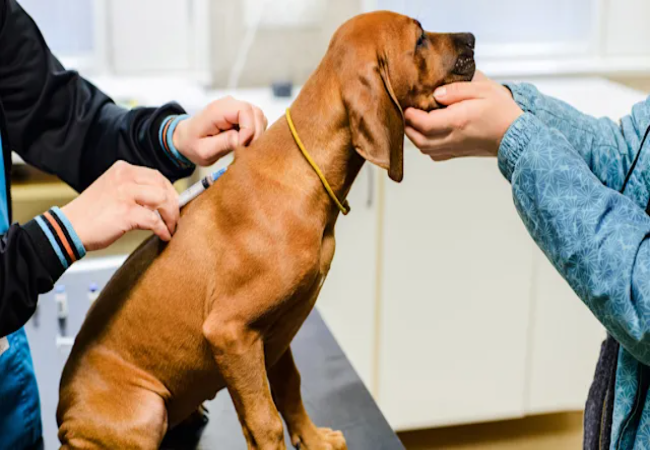Vet Approved Guide: Amitriptyline for Dogs in 2025 Understanding Uses, Dosage, and Safety🐶💊

In this article
Vet Approved Guide: Amitriptyline for Dogs in 2025 Understanding Uses, Dosage, and Safety🐶💊
By Dr. Duncan Houston BVSc
Amitriptyline, a tricyclic antidepressant, is commonly prescribed in veterinary medicine to address various conditions in dogs, including anxiety, chronic pain, and certain behavioral disorders. 🐕💊 Understanding its applications, proper administration, and potential side effects is crucial for ensuring your pet's health and comfort. Let's explore the comprehensive details of amitriptyline use in dogs as of 2025. 🩺📘
🧠 What is Amitriptyline?
Amitriptyline is a medication that belongs to the class of tricyclic antidepressants. It functions by increasing the levels of neurotransmitters such as serotonin and norepinephrine in the brain, which can help regulate mood and alleviate certain types of pain. While originally developed for human use, veterinarians often prescribe it off-label for dogs to manage various conditions.
📋 Common Uses in Dogs
- Separation Anxiety: Helps reduce distress behaviors when a dog is left alone. 🐾
- Generalized Anxiety: Assists in managing chronic anxiety symptoms. 😟
- Neuropathic Pain: Provides relief from nerve-related pain conditions. ⚡
- Behavioral Disorders: Aids in controlling behaviors like excessive grooming or aggression. 🧠
- Urinary Incontinence: May help in managing involuntary urination issues. 💧
💊 Dosage and Administration
The dosage of amitriptyline for dogs varies based on the condition being treated, the dog's size, and individual response to the medication. It's typically administered orally in tablet form, with or without food. Consistency in dosing time is important to maintain stable blood levels. Always follow your veterinarian's specific instructions regarding dosage and administration.
⚠️ Potential Side Effects
While many dogs tolerate amitriptyline well, some may experience side effects, including:
- Drowsiness: Increased sleepiness or lethargy. 😴
- Dry Mouth: Reduced saliva production. 💧
- Constipation: Difficulty in bowel movements. 🚫💩
- Urinary Retention: Difficulty urinating. 🚽
- Gastrointestinal Upset: Nausea or vomiting. 🤢
Serious side effects are rare but can include seizures, irregular heartbeat, or signs of serotonin syndrome. If any severe reactions occur, contact your veterinarian immediately.
🔄 Drug Interactions and Precautions
Amitriptyline can interact with other medications, such as monoamine oxidase inhibitors (MAOIs), SSRIs, and certain pain medications. Inform your veterinarian about all medications and supplements your dog is currently taking. Additionally, use caution in dogs with a history of heart disease, seizures, or liver problems. Regular monitoring may be recommended to ensure safety.
📝 Monitoring and Follow-Up
Regular veterinary check-ups are essential to monitor your dog's response to amitriptyline. Your vet may perform blood tests or adjust the dosage based on your dog's progress and any side effects observed. Never adjust the dosage or discontinue the medication without consulting your veterinarian.
📱 Seek Expert Advice with Ask A Vet
For personalized guidance and support, the Ask A Vet app connects you with licensed veterinarians ready to assist you. 🐾💬
Visit AskAVet.com or download the app today to ensure your dog's health and happiness. 📲






